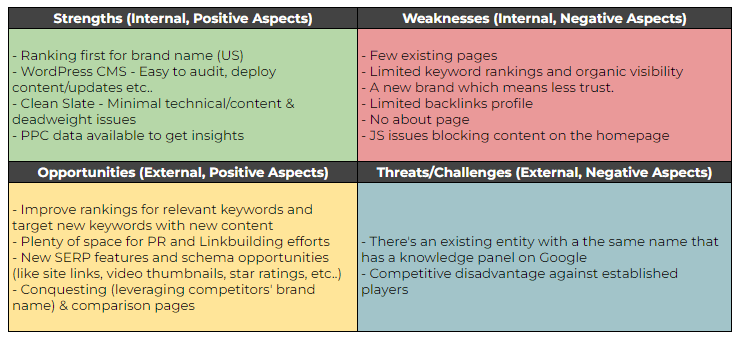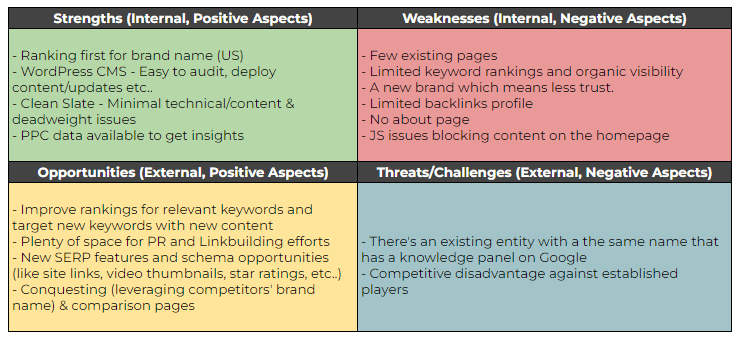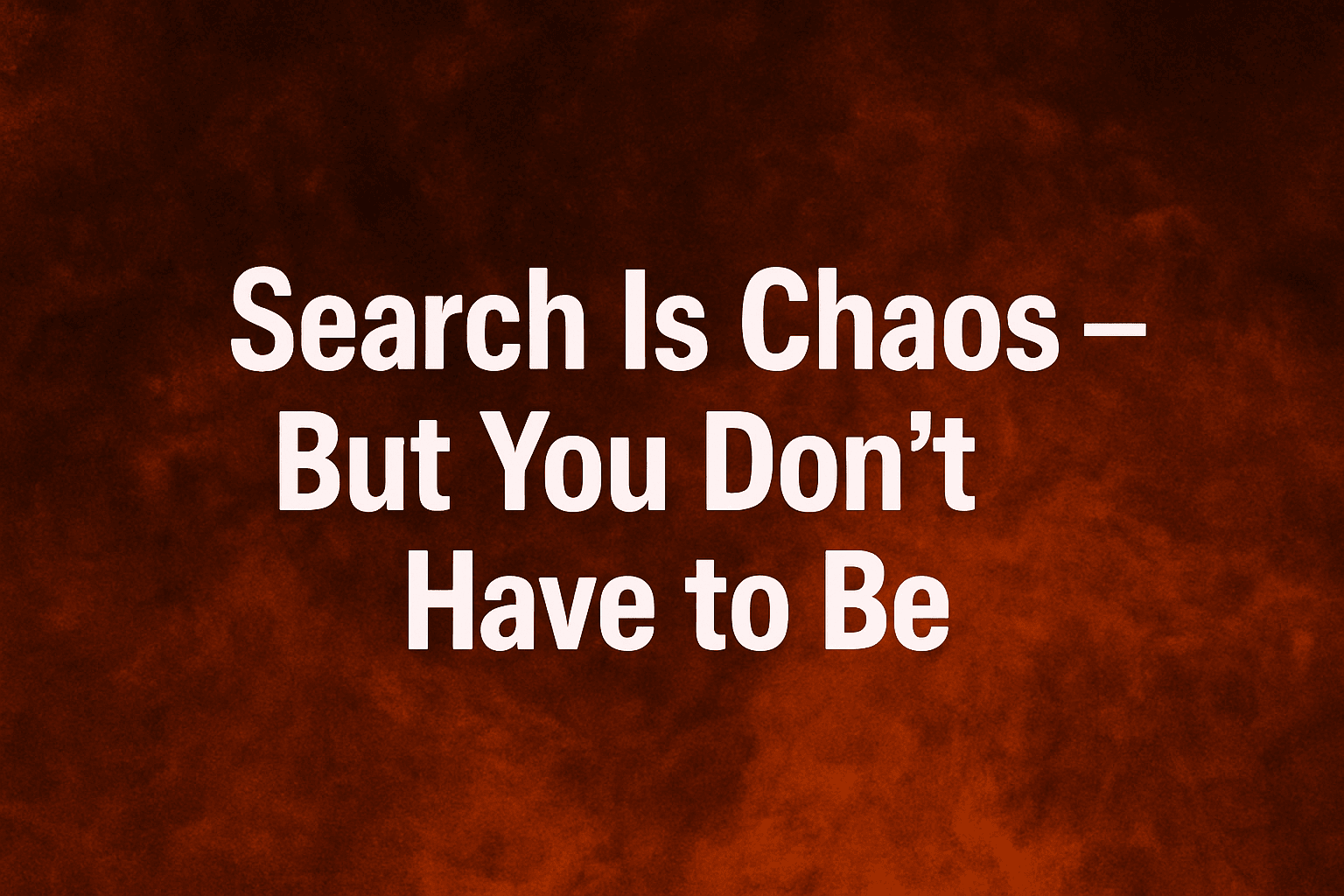A Guide to Conducting a SWOT Analysis for SEO

I think I first came across the term "SWOT Analysis" during my startup days. It was commonly discussed in meetings with other founders and as part of accelerator programs.
I recently found this tool useful when I was interviewing for a role last year and was asked to create a quick SEO strategy and present it as an interview assignment. I thought, ok how should I go about this, and then an SEO SWOT analysis seemed like the perfect tool for the task!
What is a SWOT Analysis for SEO?
An SEO SWOT analysis is an a four-panel grid that lists Strengths (Internal, Positive Aspects), Weaknesses (Internal, Negative Aspects), Opportunities (External, Positive Aspects), and Threats/Challenges (External, Negative Aspects).
Here's an example of the SWOT analysis I created for the job interview:

How to Conduct an SEO SWOT Analysis?
There are many ways you can tackle this. Here's how I recommend approaching it:
1# Start with External Factors First
This may come as counter-intuitive or how we're usually used to looking at websites in SEO. Businesses don't operate in a vacuum. Starting with external factors vs. jumping into website audits right away is a good way to understand the market, the landscape, and other factors that impact both you and your competition.
Some of the things to look at when analyzing external factors:
- Type of competition (big websites, niche websites, etc...) in SERPs for main keywords.
- Type of content (video, FAQs, images, etc...) in SERPs for main keywords.
- SERPs for Branded keywords
- Knowledge panel
- Business and SERPs competitors' website size (number of pages), backlinks profile, etc... compared to your website.
- Data in Google Trends for branded keywords and top target keywords.
- Search volumes (some industries have low search volumes naturally)
2# Internal Factors
Next is looking internally at the business as a whole and the website. Some of the things to look at when analyzing internal factors:
- The backend/CMS and tech used.
- Internal resources (or lack of): who will do the technical fixes, and who will write the content.
- Data from PPC ads
- Total number of keywords, current rankings, and competitiveness of the keywords the website is currently ranking for.
- Number of branded keywords.
- CTR and CR (since those 2 can be controlled/influenced internally)
When to Use an SEO SWOT Analysis?
There are tons of tools and frameworks out there, so it is key to know when to use what. Same for a SWOT analysis. I think there are some situations where it makes perfect sense, like:
- Pitching to new potential SEO clients. Creating a pitch for SEO clients whether you work agency side or as a freelancer is time-consuming. SWOT Analysis can save you time, yet give you enough insights to pitch your services.
- Quick SEO audits. If you ever need to have a quick look at a website, a SWOT analysis is also perfect. It is well-rounded yet fast and simple.
- Job interviews :) If you're ever asked to do a quick strategy, start with a SWOT analysis.
Do you have other ideas on using SWOT? feel free to message me on LinkedIn! Hope you found this useful. Thanks for reading.
The SEO Riddler Newsletter
Join the newsletter to receive the latest updates in your inbox.



